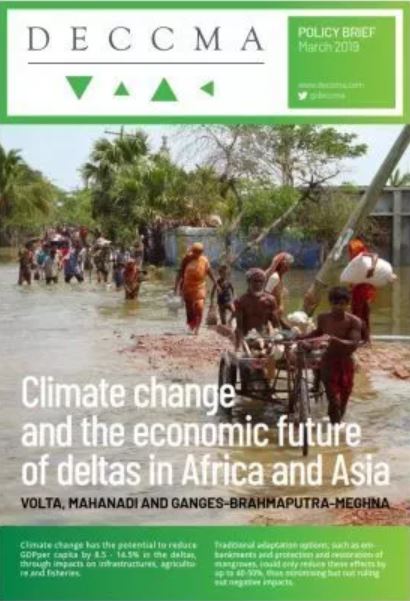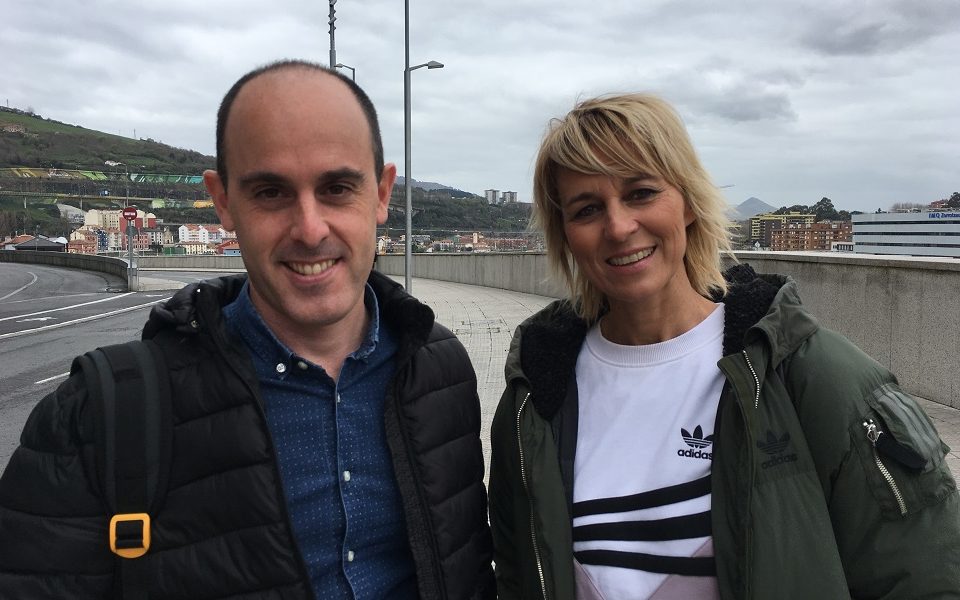March 18, 2019
Published by BC3Research Iñaki Arto at March 18, 2019
The project Deltas, vulnerability and Climate Change; Migration as an Adaptation (DECCMA), has release a new policy brief "Climate change and the economic future of deltas in Africa and Asia". The objective of it is to explore the economics implications of climate change for the three deltas of the DECCMA project and to summarise the finds for the Business as Usual scenario, without climate change, with climate change, and with climate change and adaptation.
Do you like it?
March 20, 2019
Published by BC3Research Maria Jose Sanz Mikel González-Eguino at March 20, 2019
Dentro de la "Semana del Cambio Climático" de Euskadi se ha celebrado la Conferencia Internacional de Cambio Climático 2019 “Change the Change” en San Sebastián, con el objetivo de movilizar a la ciudadanía hacia el compromiso personal frente al cambio climático. Organizada por el Departamento de Medio Ambiente, Planificación Territorial y Vivienda del Gobierno Vasco, Ministerio para la Transición Ecológica, Diputación Foral de Gipuzkoa y Ayuntamiento de Donostia/San Sebastián, y donde BC3 a apoyado el congreso como coordinador científico, se han tratado los retos del cambio climático y se han dado a conocer las iniciativas y las acciones que se están generando para luchar contra ello.
Do you like it?
March 21, 2019
Published by BC3Research Mikel González-Eguino at March 21, 2019
Categories
A raíz de la conferencia internacional sobre el cambio climático Change the Change celebrada en San Sebastián a principios del mes de marzo de 2019 Mikel Gonzalez Eguino, investigador de BC3 y coordinador de la linea Low Carbon ha sido entrevistado por el medio digital BI FM junto a Ana Urrutia, presentadora de Eguraldia de EITB. Durante la entrevista Urrutia y Gonzalez-Eguino han recalcado que el cambio climático es un hecho y que hay que conseguir concienciar a las personas.
Do you like it?
March 22, 2019
Published by BC3Research at March 22, 2019
Categories
Climate change mitigation pathways can differ strongly from one to else other, depending on the policy design, technological development or the established climate objectives. Integrated assessment models are able to project countless different climate change mitigation scenarios, allowing to compare the effects that each scenario has on other aspects, such as health, land use, energy security, inequality etc. Moreover, connecting these kind of models with additional tools increases the range of scenario implications that can be studied. In this seminar, we introduce the Global Change Assessment Model (GCAM) and other tools that can be connected to this model, such as the air quality emulator TM5-FASST.
Do you like it?



